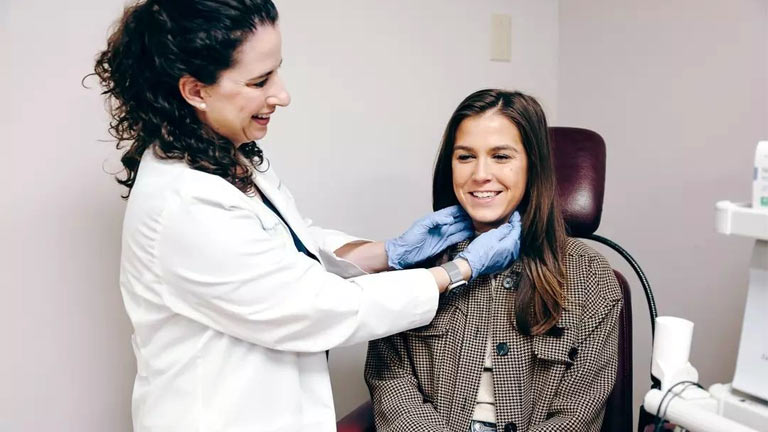
Clinical trials are essential to medical research because they demonstrate the efficacy and safety of novel interventions and therapies. Healthcare professionals are essential to the integrity and effectiveness of clinical studies. Practitioners may help raise the moral requirements of clinical trials and increase their effectiveness, efficiency, and quality by using certain tactics and approaches. Let’s examine five important ways medical professionals might improve the clinical trial process.
1. Streamline Participant Recruitment and Retention
In clinical studies, participant recruitment and retention are frequently difficult tasks. Healthcare professionals may increase the number of trial participants by actively interacting with patients, communicating concisely and clearly with them about the research, and resolving any questions or misperceptions they may have. Potential volunteers can also be found by collaborating with patient advocacy organizations, conducting community outreach, and using electronic health records.
Additionally, it can greatly increase retention rates by keeping lines of communication open, giving frequent updates, and assuring participant convenience and comfort throughout the study. By establishing trust and improving participants’ desire to take an active role in the research, these tactics provide a supportive atmosphere for participants that eventually results in more effective trials and higher-quality data.
2. Implement Efficient Trial Design and Protocols
For reliable data collection, processing, and interpretation, well-designed trial protocols are crucial. By working with scientists and statisticians throughout the planning stage, healthcare professionals may contribute to effective trial design using the CTIS. They can offer insightful information on the patient’s demographics, medical background, and current treatment plans to improve inclusion and exclusion criteria. Practitioners should also ensure that trial methods are uniform, meet ethical rules, and have straightforward directions for collecting data, reporting adverse events, and follow-up procedures.
The procedures may be customized to actual clinical settings by including healthcare professionals in the trial design process, improving the practicality and applicability of the study. This cooperative method ensures that the trial design considers practical considerations, lessens participant burden, and increases the likelihood that the experiment will be completed successfully.
3. Enhance Data Collection and Analysis
Drawing solid findings from clinical studies requires accurate and trustworthy data collecting. By using computerized data capture technologies, standardized evaluation methods, and stringent staff training, healthcare professionals may enhance data collecting. Data integrity may be increased and mistakes reduced by ensuring consistency in data entry, maintaining quality control systems, and performing routine data audits. Practitioners can also contribute to useful data analysis by offering pertinent clinical knowledge and working with biostatisticians to properly interpret the findings. Their knowledge of patient circumstances, treatment outcomes, and potential confounding variables can strengthen the analysis and their interpretation of trial data, resulting in more conclusive findings and useful information.
4. Prioritize Patient Safety and Ethics
Clinical trials must prioritize patient safety and ethical issues above everything else. Healthcare professionals should closely monitor participant well-being, swiftly report any negative incidents, and ensure that proper medical measures are taken when necessary. Practitioners must follow ethical principles and seek participants’ informed permission by outlining the risks, advantages, and viable alternatives.
They should also continually assess the trade-off between the safety of patients and trial efficacy, adjusting protocols as appropriate or terminating studies if safety issues develop. Healthcare professionals contribute to the overall trustworthy nature of the clinical trial process by emphasizing patient safety and respecting ethical standards. This helps to foster confidence among trial participants and the larger community.
5. Foster Collaborative Research Partnerships
Successful clinical trials depend on the cooperation of medical professionals, researchers, supporters, and regulatory agencies. Practitioners might actively participate in research networks, educational institutions, and professional groups to encourage collaborative relationships. Practitioners may aid in creating strong research protocols, effective trial deployment, and disseminating trial results by exchanging information, experiences, and best practices.
Research collaboration also allows people to progress in their careers, further their education, and keep up with the most recent developments in clinical research. Through these relationships, healthcare professionals may directly influence clinical trials’ direction, foster innovation, and enhance patient results on a larger scale.
Conclusion
Healthcare professionals are essential to raising the caliber and efficacy of clinical studies. Practitioners may help clinical trials succeed by speeding participant recruiting and retention, adopting effective trial design and procedures, strengthening data collecting and analysis, emphasizing patient safety and ethics, and creating cooperative research collaborations. In addition to helping the scientific community, these initiatives promote medical knowledge, enhance patient care, and eventually provide patients worldwide with improved treatment alternatives.




